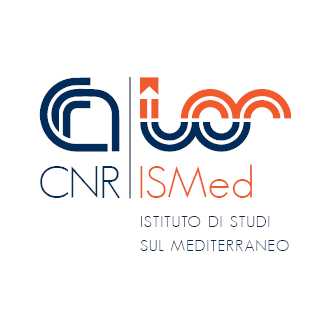Ecology and Blue Economy
Coordinator: Angela Cuttitta
Abstract
The research activity aims to study the sea and biodiversity as a resource, with a view to the regeneration of coastal marine ecosystems and their sustainable use. Far from being a mere ethical and moral goal, the study of marine biodiversity has cultural, economic and social implications, and implies enhancing what can be broadly defined as “natural capital”. This, like any other productive factor, is a fundamental ingredient for an economic-social system not only to grow, but to develop along a path of sustainability. In this sense, a full understanding of the interrelationship between economic activities attributable to marine resources and the study of biodiversity is an essential element in drawing up policy guidelines aimed at regulating and stimulating the economic growth of countries that derive a great deal from the sea, also through awareness raising and scientific dissemination.
Objectives
The research line aims to study the sea and marine biodiversity as a resource, the analysis of the processes that induced the transformation of natural environments and the evaluation of the effects of climate change on ecosystems, biodiversity, health and society in the Mediterranean.
The interaction between biology, oceanography, marine and molecular ecology for the analysis of the state, structure and functioning of Mediterranean marine ecosystems and changes in the biota, allow the study of the marine environment as a factor of cultural, economic and social development. In this context, the study of the sustainable management of biological resources is included with the application of methodologies developed on a morphological, biomolecular, genetic and biochemical basis for applications in the environmental, health, food, sensor and biomedical fields.
Activities
The basic activities of the research are: the design and search for partners; the involvement of the territories; the planning and implementation of in vitro and in vivo experiments; the direct and indirect sampling of organisms and environmental parameters; the study of the state and change of biodiversity in its structural components; the archiving and analysis of the data collected; the processing of the results through statistical analysis; the generation of new products, processes and services applicable in different sectors of the blue economy; the scientific dissemination of the activities carried out; the creation of networks for sharing the results obtained.
Themes
The project falls within the following themes: blue economy; marine ecology; molecular ecology; biodiversity. The sectors of the blue economy concerned are: agri-foodstuffs, human and environmental health, environmental sensing, sanitation.
The research, in line with the 2030 Agenda for Sustainable Development, deals with a number of issues: projects and exchanges with Mediterranean countries; protection of marine resources; food security and sustainable fishing; exploitation of residues and plastics for new forms of fuel. The research also falls within the thematic area 6 “Food, bio-economy, natural resources, agriculture, environment” of the NRP 2021-2027, and in particular within sub-area 6.5 “Knowledge, technological innovation and sustainable management of marine ecosystems”.
Main collaborations
In addition to a well-established interaction with other institutes of the National Research Council, the research relies on a wide relational network structured by several national and international scientific institutions, as well as numerous public administrations and stakeholders operating in the Mediterranean area. In particular:
- Food and Agriculture Organization (FAO) of the United Nations
- United Nations Children’s Fund (UNICEF) of the United Nations
- Columbia University (New York, Tunis)
- Universidad de Deusto (Bilbao)
- Instituto Espanol de Oceanografia (Malaga, Vigo, Balearic Islands)
- ISTMT (Tunis)
- University of Sfax (Tunis)
- UTAP (Tunis)
- CNRS (Lebanon)
- University of Belgrade (Belgrade)
- École d’Ingénieurs en informatique et prévention des risqués (Saint Barthelemy D’Anjou)
- Shemyakin-Ovchinnikov Institute of Bioorganic Chemistry (Russian Federation)
- Institute of Molecular Medicine (Russian Federation)
- Sechenov First Moscow State Medical University (Moscow)
- LUMSA University (Rome, Palermo)
- Catholic University of the Sacred Heart (Milan)
- University of Palermo (DEMS, DISTEM, STEBICEF, DiFC)
- University of Urbino “Carlo Bo” (DiSPeA)
- University of Florence (DISEI)
- Superior Institute of Health
- INGV (Pisa, Palermo)
- ARPA Sicily
- ISPRA
- Italian Zoological Station Anthon Dorn
Main products
Scientific publications in peer-reviewed journals with international impact and book chapters.
Technical reports and dissemination products on CNR Edizioni and SOLAR CNR.
Scientific databases, prototypes and patents.
Participation in regional governance tables.
Development of agreements and collaborations with universities, research centres, public and private partners.
Last update
20 November 2023, 11:38

 CNR – ISMed
CNR – ISMed